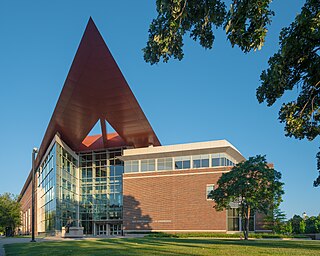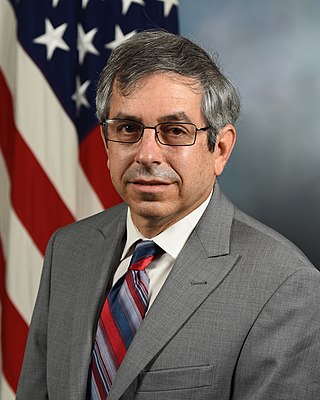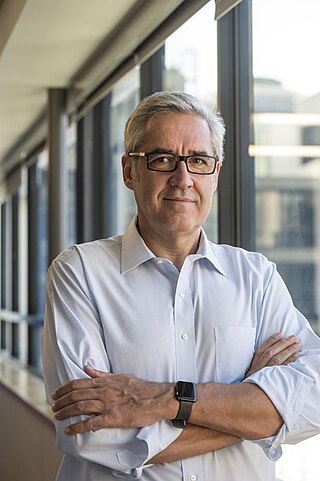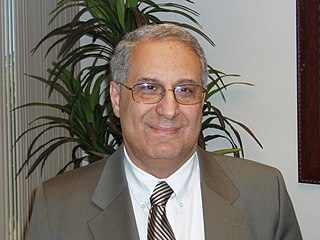Related Research Articles

The Nanjing University of Aeronautics and Astronautics is a public university in Nanjing, Jiangsu, China. It is affiliated with the Ministry of Industry and Information Technology. The university is part of Project 211 and the Double First-Class Construction.
Ali Hasan Nayfeh was a Palestinian-Jordanian mathematician, mechanical engineer and physicist. He is regarded as the most influential scholar and scientist in the area of applied nonlinear dynamics in mechanics and engineering. He was the inaugural winner of the Thomas K. Caughey Dynamics Award, and was awarded the Benjamin Franklin Medal in mechanical engineering. His pioneering work in nonlinear dynamics has been influential in the construction and maintenance of machines and structures that are common in daily life, such as ships, cranes, bridges, buildings, skyscrapers, jet engines, rocket engines, aircraft and spacecraft.
Satya Atluri was an Indian-American engineer, educator, researcher and scientist in aerospace engineering, mechanical engineering and computational sciences, who was a Distinguished Professor Emeritus of Aerospace Engineering at the University of California, Irvine. Since 1966, he made fundamental contributions to the development of finite element methods, boundary element methods, Messless Local Petrov-Galerkin (MLPG) methods, Fragile Points Methods, Local Variational Iteration Methods, for general problems of engineering, solid mechanics, fluid dynamics, heat transfer, flexoelectricity, ferromagnetics, gradient and nonlocal theories, nonlinear dynamics, shell theories, micromechanics of materials, structural integrity and damage tolerance, Orbital mechanics, Astrodynamics, digital Twins of Aerospace Systems, etc.
Charbel Farhat is the Vivian Church Hoff Professor of Aircraft Structures in the School of Engineering at Stanford University, where from 2008 to 2023, he chaired the Department of Aeronautics and Astronautics. From 2022 to 2023, he chaired this department as the inaugural James and Anna Marie Spilker Chair of Aeronautics and Astronautics. He is also Professor in the Institute for Computational and Mathematical Engineering, and Director of the Stanford-King Abdulaziz City for Science and Technology Center of Excellence for Aeronautics and Astronautics. From 2017 to 2023, he served on the Space Technology Industry-Government-University Roundtable; from 2015 to 2019, he served on the United States Air Force Scientific Advisory Board (SAB); from 2008 to 2018, he served on the United States Bureau of Industry and Security's Emerging Technology and Research Advisory Committee (ETRAC) at the United States Department of Commerce; and from 2007 to 2018, he served as the Director of the Army High Performance Computing Research Center at Stanford University. He was designated by the US Navy recruiters as a Primary Key-Influencer and flew with the Blue Angels during Fleet Week 2014.
Hussein M. Zbib was Lebanese-born American engineer. He was a professor in School of Mechanical and Materials Engineering at Washington State University, where he has also served as director of the School of Mechanical and Materials Engineering and director of the Computational Mechanics and Materials Laboratory. His research expertise was in the area of thermo-mechanical behavior and properties of solids. Zbib was recognized for his work on the theory of 3D dislocation dynamics and defects in metals, multi-scale modeling of metal plasticity, and strain gradient plasticity theory.

The Purdue University School of Aeronautics and Astronautics is Purdue University's school of aerospace engineering contained within the Purdue University College of Engineering. The school offers B.S., M.S., and Ph.D. degrees in aeronautical and astronautical engineering. It also provides distance graduate education, including an online M.S. in Engineering with concentration in Aeronautics and Astronautics, and a distance Ph.D. Its main office and some of its labs are located in the Neil Armstrong Hall of Engineering. As of 2010, the School has awarded an estimated 6% of BS degrees and 7% of PhDs in aerospace engineering in the United States.
William Kenneth George is an American-born fluid dynamicist holding both American and Swedish citizenships. He is currently senior research investigator in the Department of Aeronautics at Imperial College London. George is known for his research on both theoretical and experimental turbulence.
Alan H. Epstein is a distinguished aeronautical engineer. He received his S.B., S.M. and Ph.D. degrees from Massachusetts Institute of Technology in 1971, 1972 and 1975 respectively. At M.I.T. he was the R.C. Maclaurin Professor of Aeronautics and Astronautics and the Director of the Gas Turbine Laboratory.

Ulfila Mark J. Lewis is a senior American aerospace and defense executive with special expertise in hypersonics. He is currently the Executive Director of the National Defense Industrial Association's Emerging Technologies Institute, following his role in the second half of 2020 as the acting US Deputy Under Secretary of Defense for Research and Engineering, and before that the Director of Defense Research and Engineering for Modernization. He was the Chief Scientist of the U.S. Air Force, Washington, D.C. from 2004 to 2008 and was the longest-serving Chief Scientist in Air Force history. He served as chief scientific adviser to the Chief of Staff and Secretary of the Air Force, and provided assessments on a wide range of scientific and technical issues affecting the Air Force mission. In this role he identified and analyzed technical issues and brought them to attention of Air Force leaders, and interacted with other Air Staff principals, operational commanders, combatant commands, acquisition, and science & technology communities to address cross-organizational technical issues and solutions. His primary areas of focus included energy, sustainment, long-range strike technologies, advanced propulsion systems, and workforce development.
William Rees Sears was an American aeronautical engineer and educator who worked at Caltech, Northrop Aircraft, Cornell University, and the University of Arizona. He was an editor of the Journal of the Aeronautical Sciences from 1955 to 1963 and the founding Editor of the Annual Review of Fluid Mechanics in 1969.
John L. Junkins is an American academic and a distinguished professor of aerospace engineering in the College of Engineering at Texas A&M University specializing in spacecraft navigation, guidance, dynamics, and control. He holds the Royce E. Wisenbaker Endowed Chair at Texas A&M University and also serves as the Founding Director of the Hagler Institute for Advanced Study at Texas A&M University, since its founding in December 2010. On November 24, 2020, Junkins was announced as the interim President of Texas A&M University starting January 2021. He was the interim president until May 31, 2021.
Nicholas J. Hoff was a Hungarian-born American engineer specializing in aeronautics and astronautics, which he taught at Stanford University.

George Em Karniadakis is a professor of applied mathematics at Brown University. He is a Greek-American researcher who is known for his wide-spectrum work on high-dimensional stochastic modeling and multiscale simulations of physical and biological systems, and is a pioneer of spectral/hp-element methods for fluids in complex geometries, general polynomial chaos for uncertainty quantification, and the Sturm-Liouville theory for partial differential equations and fractional calculus.

Jaime Peraire, a native of Barcelona, is the H. N. Slater Professor of Aeronautics and Astronautics and former head of the Department of Aeronautics and Astronautics at the Massachusetts Institute of Technology. He specializes in computational aspects of aeronautics and astronautics, and is interested in improved teaching methods in various fields of engineering.

Peyman Givi is a Persian-American rocket scientist and engineer.

Joseph Majdalani is a Lebanese-American professor of Mechanical and Aerospace Engineering. He began his career at Marquette University, before serving as both the Jack D. Whitfield Professor of High Speed Flows and Arnold Chair of Excellence at the University of Tennessee Space Institute. He then served as the Auburn Alumni Engineering Council Endowed Professor and Chair, and is currently the Hugh and Loeda Francis Chair of Excellence in Aerospace Engineering at Auburn University.

Max Erich (Eric) Reissner was a German-American civil engineer and mathematician, and Professor of Mathematics at the Massachusetts Institute of Technology. He was recipient of the Theodore von Karman Medal in 1964, and the ASME Medal in 1988.
Michael Ortiz is a dual American-Spanish scientist and researcher in the fields of structural, continuum and computational mechanics and is a Frank and Ora Lee Marble Professor Emeritus of Aeronautics and Mechanical Engineering at California Institute of Technology. Prior to his arrival at Caltech in 1995, he was Professor of Engineering at Brown University.
Helen Louise Reed is an American aerospace engineer. Her research interests include hypersonics, energy efficient aircraft, laminar–turbulent transition, and small satellite design. She is a Fellow of the American Society of Mechanical Engineers, American Physical Society, and American Institute of Aeronautics and Astronautics.

Reda R. Mankbadi is the founding Dean of the Engineering College at Embry-Riddle Aeronautical University. He is a former NASA senior scientist at NASA's Glenn Research Center and a Fellow of the NASA Lewis Research Academy. Mankbadi has published over 150 scientific papers.